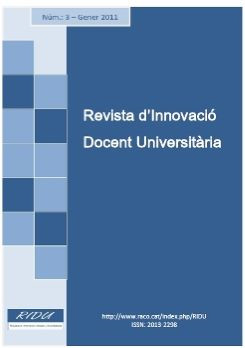Variables that predict academic achievement in the European Higher Education Area (EHEA): thinking styles, academic goals, grade point average and study hours
DOI:
https://doi.org/10.1344/105.000001656Keywords:
EEA, Thinking styles, Academic goals, Study hours, Degree entrance noteAbstract
This work has focused on knowing how first-year university students fit in with the EHEA learning requirements regarding to thinking styles, academic goals, grade point average and study hours. For this aim the present study works with a sample of 559 first-year students from eleven degrees of the University of Oviedo, 190 men (34 %) and 369 women (66 %). The Thinking Styles Questionnaire for Students (TSQS), the Academic Goals Assessment Questionnaire (CEMA-II) and an academic and personal data questionnaire have been used for this research. The results from the analysis suggest that the first-year university students are directed to learning goals. Furthermore, they prefer thinking styles related to autonomous and creative task resolution regardless of the grade they be enrolled.References
Bernardo, B.I., Zhang, L.F. y Callueng, C. (2002) Thinking styles and academic achievement among Filipino students. The Journal of GeneticPsychology, 163(2), pp. 149-163.
Bernardo, A., Núñez, J.C., González-Pienda, J.A., Rosário, P., Álvarez, L., González-Castro, P., Valle, A., Rodríguez, S., Cerezo, R. Álvarez, D. y Rodríguez, C. (2009) Estilos intelectuales y rendimiento académico: una perspectiva evolutiva. Psicothema, 21(4), pp. 555-561.
González, J. y Wagenaar, R. (Eds.) (2003) Tuning Educational Structures in Europe. Informe final-Proyecto Piloto, Fase Uno. Universidad de Deusto, Bilbao.
Núñez, J.C., González-Pienda, J.A., González-Pumariega, S, García, M. & Roces, C. (1997) Cuestionario para la Evaluación de Metas Académicas en Secundaria (CEMA-II). Departamento de Psicología, Universidad de Oviedo.
Rodríguez, S., Cabanach, R.G., Piñeiro, I., Valle, A., Núñez, J.C. y González-Pienda, J.A. (2001) Metas de aproximación, metas de evitación y múltiples metas académicas. Psicothema, 13(4), pp. 546-550.
Sternberg, R.J. (1999) Estilos de pensamiento: claves para identificar nuestro modo de pensar y enriquecer nuestra capacidad de reflexión. Paidós, Barcelona.
Sternberg, R.J. y Wagner, R.K. (1991) MSGThinking Styles Inventory (manual). Departamento de Psicología, Universidad de Yale.
Sternberg, R.J. y Zhang, L.F. (2001) Perspectives on thinking, learning and cognitive styles. Sternberg y Zhang, Hong Kong.
Valle, A., Núñez, J.C., Rodríguez, S., Cabanach, R.G., González-Pienda, J.A. y Rosário, P. (2010) Perfiles motivacionales y diferencias en variables afectivas, motivacionales y de logro. Universitas Psychologica, 9(1), pp. 109-121.
Valle, A., Rodríguez, S., Cabanach, R.G., Núñez, J.C., González-Pienda, J.A. y Rosário, P. (2009) Metas Académicas: Perspectiva Histórica y Conceptual e Implicaciones Educativas. Electronic Journal of Research in Educational Psychology, 7(3), pp. 1073-1106.
Zhang, L.F. (2007) Intellectual Styles and Academic Achievement among Senior Secondary School Students in Rural China. Educational of Psychology, 27(5), pp. 675-692.
Downloads
Published
Issue
Section
License
Copyright (c) 2011 Ana Belén Bernardo, José Carlos Núñez, Celestino Rodríguez, Inmaculada Bernardo, Estrella Fernández, Rebeca Cerezo, Aroa González

This work is licensed under a Creative Commons Attribution 4.0 International License.
Authors whishing to publish in this journal agree to the following conditions:
- The author or author retain copyright and grants the journal the right of first publication of the paper.
- The texts will be published under license "Reconocimiento Creative Commons 4.0 España", which allows to share, distribute, reproduce and the public communication of the paper, as long as the name of the author or authors and the journal are clearly stated.







